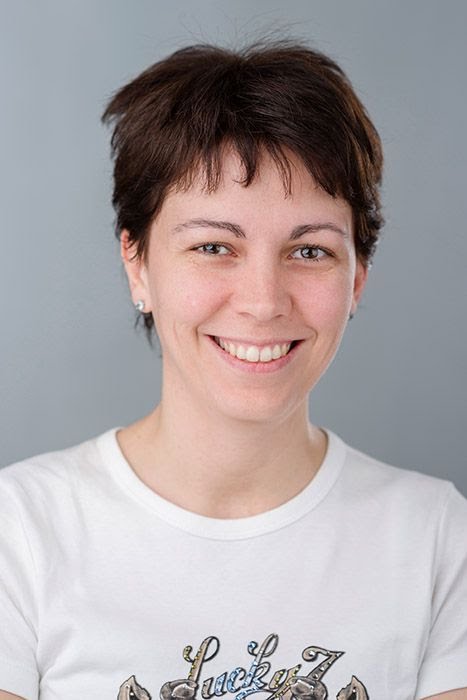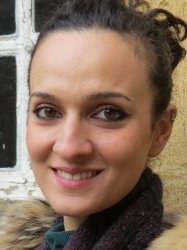Studying at the University of Verona
Here you can find information on the organisational aspects of the Programme, lecture timetables, learning activities and useful contact details for your time at the University, from enrolment to graduation.
Academic calendar
The academic calendar shows the deadlines and scheduled events that are relevant to students, teaching and technical-administrative staff of the University. Public holidays and University closures are also indicated. The academic year normally begins on 1 October each year and ends on 30 September of the following year.
Course calendar
The Academic Calendar sets out the degree programme lecture and exam timetables, as well as the relevant university closure dates..
| Period | From | To |
|---|---|---|
| primo semestre (lauree magistrali) | Oct 4, 2021 | Dec 17, 2021 |
| secondo semestre (lauree magistrali) | Feb 21, 2022 | May 13, 2022 |
| Session | From | To |
|---|---|---|
| sessione invernale | Jan 10, 2022 | Feb 18, 2022 |
| sessione estiva | May 23, 2022 | Jul 8, 2022 |
| sessione autunnale | Aug 22, 2022 | Sep 23, 2022 |
| Session | From | To |
|---|---|---|
| sessione autunnale (validità a.a. 2020/2021) | Dec 6, 2021 | Dec 10, 2021 |
| sessione invernale (validità a.a. 2020/2021) | Apr 6, 2022 | Apr 8, 2022 |
| sessione estiva (validità a.a. 2021/2022) | Sep 5, 2022 | Sep 6, 2022 |
Exam calendar
Exam dates and rounds are managed by the relevant Economics Teaching and Student Services Unit.
To view all the exam sessions available, please use the Exam dashboard on ESSE3.
If you forgot your login details or have problems logging in, please contact the relevant IT HelpDesk, or check the login details recovery web page.
Academic staff
 maurizio.malpede@univr.it
maurizio.malpede@univr.it

Vannucci Virginia
 virginia.vannucci@univr.it
virginia.vannucci@univr.it
Study Plan
The Study Plan includes all modules, teaching and learning activities that each student will need to undertake during their time at the University.
Please select your Study Plan based on your enrollment year.
1° Year
| Modules | Credits | TAF | SSD |
|---|
One module between the following2° Year activated in the A.Y. 2022/2023
| Modules | Credits | TAF | SSD |
|---|
Two modules among the followingTwo modules among the followingOne module between the following| Modules | Credits | TAF | SSD |
|---|
One module between the following| Modules | Credits | TAF | SSD |
|---|
Two modules among the followingTwo modules among the followingOne module between the following| Modules | Credits | TAF | SSD |
|---|
Legend | Type of training activity (TTA)
TAF (Type of Educational Activity) All courses and activities are classified into different types of educational activities, indicated by a letter.
Econometrics (2021/2022)
Teaching code
4S02464
Teacher
Coordinator
Credits
9
Language
English
Scientific Disciplinary Sector (SSD)
SECS-P/05 - ECONOMETRICS
Period
secondo semestre (lauree magistrali) dal Feb 21, 2022 al May 13, 2022.
Learning outcomes
The course provides an overview of the main econometric tools, with particular emphasis on economic applications, developed interactively using professional packages. The program covers standard econometric models (OLS regression and its diagnostics) as well as more advanced models for the analysis of cross-sectional, time series and panel data (IV, probit, tobit, random and fixed effects). Particular attention will be given to the intuition behind each topic, in addition to more formal issues. Towards the end of the course a voluntary assignment will be proposed, with the aim of translating research questions into empirical analyses, applying on real data the tools learnt in class, and stimulating discussion among students. At the end of the course, students should be able to: i) read and critically interpret empirical works developed by other researchers, ii) manage small and large datasets in order to extract useful information, and iii) design and implement on their own empirical analyses based on real data.
Program
1) Introduction
1.1) What is Econometrics?
Definition; cross-section, time series and panel data.
1.2) R tutorial
Data management; basic statistics; graphics.
2) Ordinary Least Squares (OLS) Estimator
2.1) Introduction
Univariate and multivariate regression; marginal effects and elasticity; R-squared and adjusted R-squared; outliers.
2.2) Properties
Gauss-Markov assumptions; unbiasedness; efficiency; consistency; asymptotic normality.
2.3) Testing
t-test on one restriction; F test on several restrictions.
3) OLS Diagnostics
3.1) Specification
Collinearity; superfluous and omitted variables; RESET test of specification; Chow test of structural stability.
3.2) Heteroskedasticity
White test and Breusch-Pagan test; White robust standard errors.
4) Instrumental Variable (IV) Estimator
4.1) Estimator
Assumptions; Simple instrumental variable (SIV) and generalized instrumental variable (GIV); properties; two-stage derivation (2SLS).
4.2) Instrument selection
Relevance test; weak instruments; Sargan validity test; Hausman exogeneity test.
5) Limited Dependent Variable (LDV)
5.1) Binary dependent variable
Linear probability model (LPM); probit and logit models; marginal effects; maximum likelihood estimate; goodness of fit; hypothesis testing.
5.2) Truncated and censored data
Truncated regression; tobit-I model; tobit-II and heckman models; marginal effects; goodness of fit.
6) Further types of data
6.1) Time series
Stationarity; AR processes; Durbin-Watson and Breusch-Godfrey tests; Newey-West robust standard errors.
6.1) Panel data
Diff-in-diff; Pooled effects, fixed effects and random effects; goodness of fit; comparison tests; attrition.
Lecture method: frontal teaching
Bibliography
Examination Methods
The exam is written; no oral integration is planned.
The exam is made of one written essay and one individual homework. The final grade is given by the average of the grades in the essay and the homework, with 80% and 20% weights respectively. In order to pass the exam, it is necessary to obtain a grade not below 16/30 in the written essay. Students can separately reject the essay grade and the homework grade. However, the homework grade can be rejected only once.
The written essay lasts one hour and thirty minutes and covers the whole program of the course. Use of handheld calculators is allowed, but use of personal notes or other teaching material is not allowed.
The homework is developed individually, and can be of two types (Homework I or Homework II). Homework I aims to develop analytical skills through personal data analysis. Homework II aims to develop critical skills with respect to empirical applications. Each student can choose which type of homework to deliver, but must deliver one of them. Once the deadline for delivery of Homework I has expired, it is possible to deliver Homework II only. The homework has to be delivered before taking part in the written essay; its grade remains valid throughout the academic year.
Type D and Type F activities
| years | Modules | TAF | Teacher |
|---|---|---|---|
| 1° 2° | The fashion lab (1 ECTS) | D |
Caterina Fratea
(Coordinator)
|
| 1° 2° | The fashion lab (2 ECTS) | D |
Caterina Fratea
(Coordinator)
|
| 1° 2° | The fashion lab (3 ECTS) | D |
Caterina Fratea
(Coordinator)
|
| years | Modules | TAF | Teacher |
|---|---|---|---|
| 1° 2° | Marketing plan | D |
Virginia Vannucci
(Coordinator)
|
| years | Modules | TAF | Teacher |
|---|---|---|---|
| 1° 2° | Internationalization and Sustainability. Friends or Enemies? | D |
Angelo Zago
(Coordinator)
|
| 1° 2° | Internationalization and Sustainability. Friends or Enemies? | D |
Angelo Zago
(Coordinator)
|
| 1° 2° | Internationalization and Sustainability. Friends or Enemies? | D |
Angelo Zago
(Coordinator)
|
| 1° 2° | Data Analysis Laboratory with R (Verona) | D |
Marco Minozzo
(Coordinator)
|
| 1° 2° | Data Visualization Laboratory | D |
Marco Minozzo
(Coordinator)
|
| 1° 2° | Python Laboratory | D |
Marco Minozzo
(Coordinator)
|
| 1° 2° | Data Science Laboratory with SAP | D |
Marco Minozzo
(Coordinator)
|
| 1° 2° | Advanced Excel Laboratory (Verona) | D |
Marco Minozzo
(Coordinator)
|
| 1° 2° | Excel Laboratory (Verona) | D |
Marco Minozzo
(Coordinator)
|
| 1° 2° | Programming in Matlab | D |
Marco Minozzo
(Coordinator)
|
| 1° 2° | Programming in SAS | D |
Marco Minozzo
(Coordinator)
|
| 1° 2° | Samsung Innovation Camp | D |
Marco Minozzo
(Coordinator)
|
| years | Modules | TAF | Teacher |
|---|---|---|---|
| 1° 2° | Business & Predictive Analytics for International Firms (with Excel Applications) - 2021/2022 | D |
Angelo Zago
(Coordinator)
|
| 1° 2° | What paradigms beyond the pandemic? Individual vs. Society, Private vs. Public | D |
Federico Brunetti
(Coordinator)
|
| 1° 2° | Data Discovery for Business Decisions- 2021/2022 | D |
Claudio Zoli
(Coordinator)
|
| 1° 2° | Elements of Financial Risk Management - 2021/2022 | D |
Claudio Zoli
(Coordinator)
|
| 1° 2° | English for business and economics | F |
Claudio Zoli
|
| 1° 2° | Integrated Financial Planning | D |
Riccardo Stacchezzini
(Coordinator)
|
| 1° 2° | Introduction to Business Plan-2021/2022 | D |
Paolo Roffia
(Coordinator)
|
| years | Modules | TAF | Teacher |
|---|---|---|---|
| 1° 2° | The fashion lab (1 ECTS) | D |
Caterina Fratea
(Coordinator)
|
| 1° 2° | The fashion lab (2 ECTS) | D |
Caterina Fratea
(Coordinator)
|
| 1° 2° | The fashion lab (3 ECTS) | D |
Caterina Fratea
(Coordinator)
|
| years | Modules | TAF | Teacher |
|---|---|---|---|
| 1° 2° | La metodologia SEM applicata allo studio della relazione tra gestione del rischio e performance nelle PMI | D |
Cristina Florio
(Coordinator)
|
| 1° 2° | Laboratory on research methods for business | D |
Cristina Florio
(Coordinator)
|
| 1° 2° | Professional Communication for Economics A.A. 2021-22 | D |
Claudio Zoli
(Coordinator)
|
| years | Modules | TAF | Teacher |
|---|---|---|---|
| 1° 2° | How to Enter in a Foreign Market. Theory and Applications - 2021/2022 | D |
Angelo Zago
(Coordinator)
|
Career prospects
Module/Programme news
News for students
There you will find information, resources and services useful during your time at the University (Student’s exam record, your study plan on ESSE3, Distance Learning courses, university email account, office forms, administrative procedures, etc.). You can log into MyUnivr with your GIA login details: only in this way will you be able to receive notification of all the notices from your teachers and your secretariat via email and also via the Univr app.
Graduation
List of thesis proposals
| theses proposals | Research area |
|---|---|
| PMI (SMES) and financial performance | MANAGEMENT OF ENTERPRISES - MANAGEMENT OF ENTERPRISES |
| Corporate governance, financial performance and international business | Various topics |
Linguistic training CLA
Internships
Gestione carriere
Student login and resources
Methods of teaching delivery
All lectures as well as all the exams are held in person. In particular, we highlight the importance of taking part in classroom activities in order to benefit from interaction with colleagues and instructors and participating in project works, presentations and group works that could be organized by the different courses.
Furthermore, as a further service to students, the lessons will be video-recorded and made available on the relevant e-learning platform of the courses unless otherwise communicated by the individual lecturers who will also define the methods and times for activating this service. However, it is underlined that the recordings do not represent a substitute for the lectures and activities carried out in the classroom.

 045 8028 508
045 8028 508





























